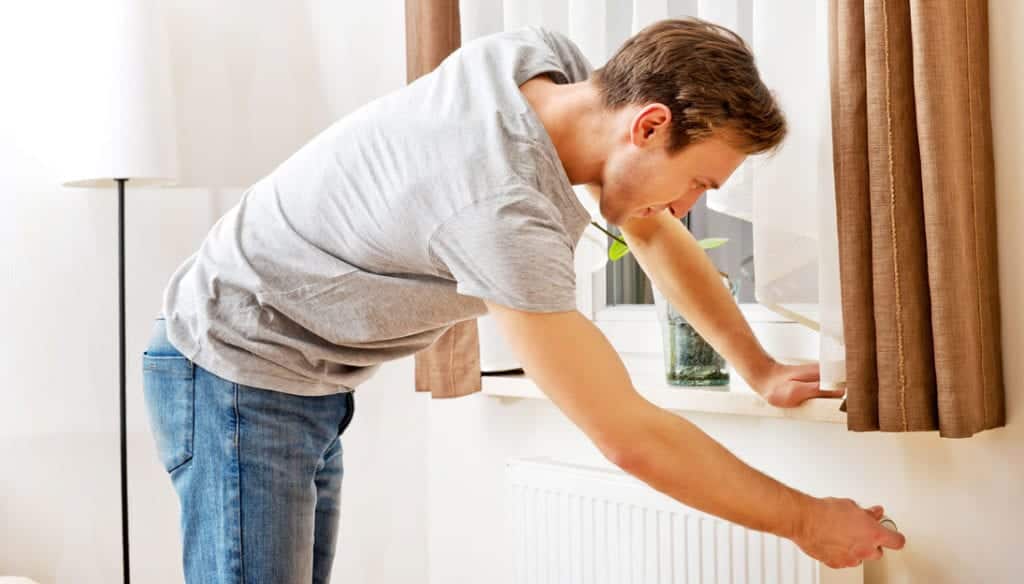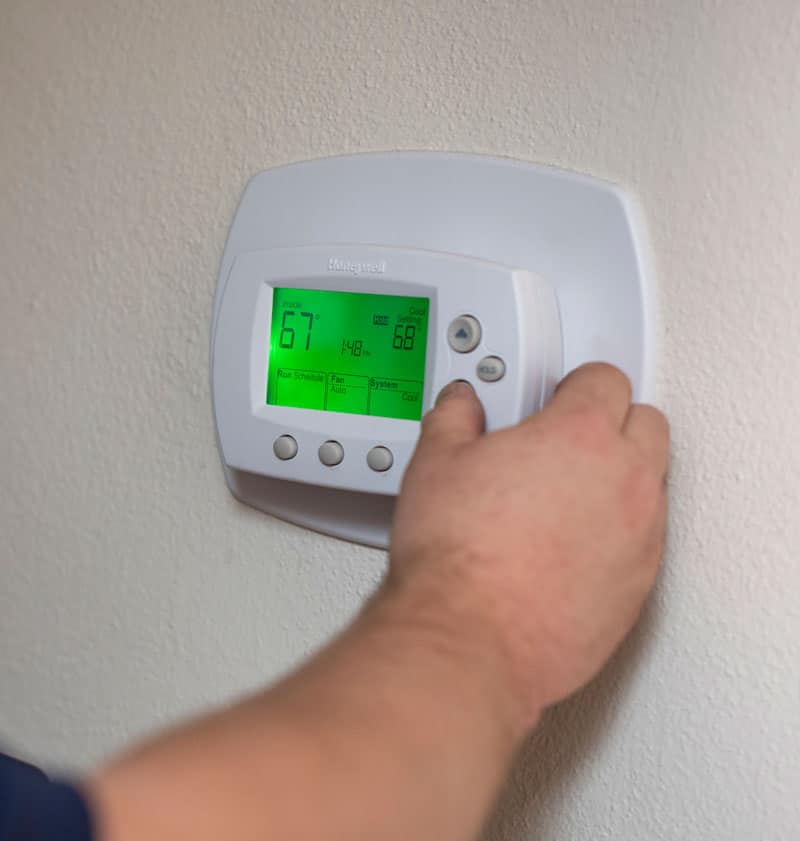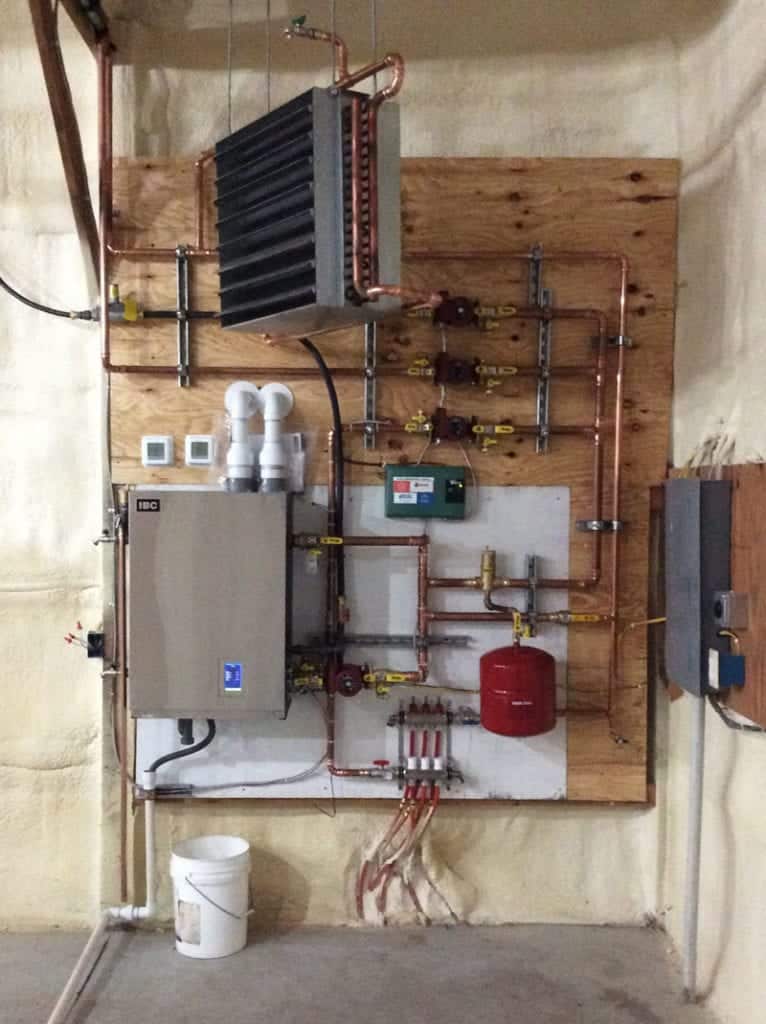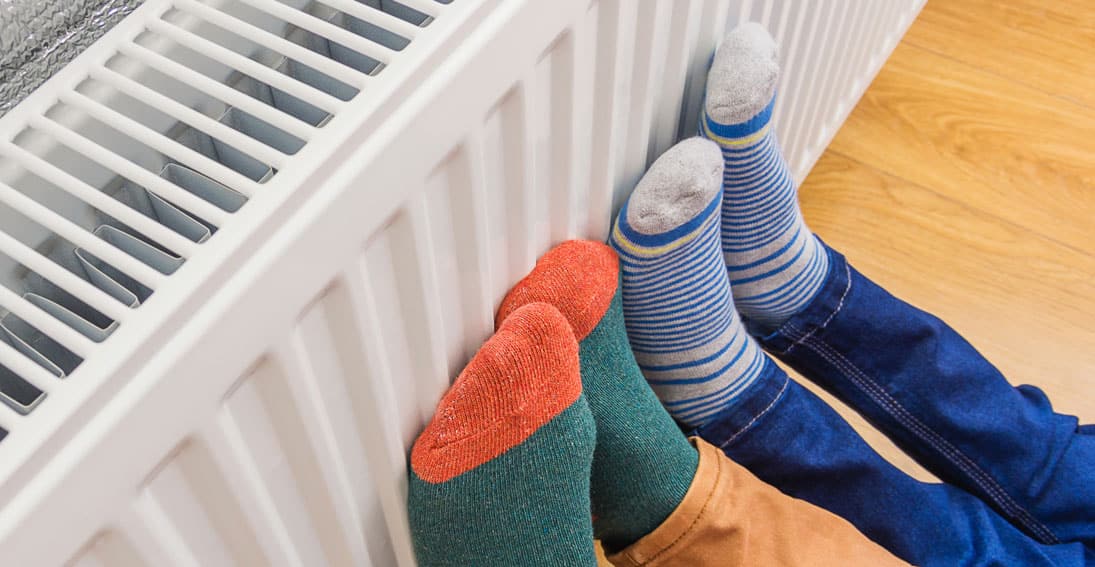In our cold climate, it’s vital for every home to have a reliable heat source in the winter. One of the most common forms of central heating equipment is a boiler, which distributes heat using steam or hot water through pipes to radiators or baseboard heaters in a home.
Benefits of boilers include even heat distribution, less maintenance, good indoor air quality, and energy savings. However, like any central heating system, boilers need to be properly cared for to ensure they operate safely and efficiently.
If you heat your home with a boiler, keep reading to learn how to boost its efficiency so your family can stay cozy all winter long, while keeping your energy bills within budget.
Bleed Your Radiator
If your heat is on but your radiator feels cool, it may have air trapped inside that is preventing the steam or hot water from radiating the heat into the room. The technical term for releasing this excess air is “bleeding” your radiator and involves temporarily turning off your central heating equipment. Instructions vary according to your specific system, so we recommend consulting your heating and cooling technician before you begin, so the process is completed safely and correctly.

Implement Zone Controls
If your heating system uses hot water radiators to distribute warmth in your home, a heating and cooling technician can install valves in your radiators to create a zone-controlled environment, which allows you to prioritize heating in specific sections of your home. Although unused rooms still need to be at least 50 degrees to prevent your water pipes from freezing, you save energy over time by keeping only the rooms that you use every day at a higher temperature.
Install a Programmable Thermostat
Thermostats tell your boiler how much heat to produce to meet the set temperature. However, keeping the temperature the same when you’re not home results in wasted energy and higher utility bills. You can save up to 10% on your energy bills every year by lowering your thermostat 7-10 degrees for eight hours a day in the winter (or turning it up the same amount in the summer). A programmable thermostat streamlines this process and optimizes your equipment, because it automatically adjusts indoor temperature according to your preferences.

Schedule Routine Maintenance
Although boilers require less overall maintenance than forced air heating systems, your equipment needs to be inspected by a certified home heating and cooling technician at least once a year. Maintenance tasks will differ slightly depending on the type of boiler in your home, but typically a technician will check your pressure gauge, inspect your boiler tank and pipes, and clean the heat exchanger to ensure your equipment runs as safely and efficiently as possible. Bears Home Solutions offers a Bear Care maintenance program that allows you to schedule routine maintenance ahead of time and keep your system in top shape.

Replace Your Boiler
If you’ve done everything you can to improve your boiler’s efficiency but your equipment’s performance is still poor, it may be time to invest in a new boiler. Modern boilers can be up to 98.5% efficient, depending on the fuel source, and are sleeker than older models, so you can enjoy energy savings without sacrificing precious space in your home.
Whether you need boiler maintenance or installation, our experts at Bears Home Solutions are here to help you get the most out of your heating equipment this winter. Contact us today to get started!



